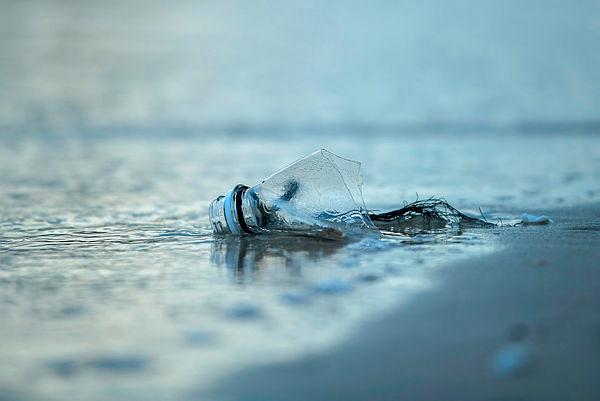PETALING JAYA: An environmental study has revealed Malaysia contributes significantly to microplastic pollution in the marine ecosystem.
Universiti Putra Malaysia Assoc Prof Dr Sarva Mangala Praveena Appalanaidu said the pollution was caused by the dumping of personal care and cosmetics products, adding that the situation is worrisome and called for prompt action to address the issue.
“Microplastics are tiny fragments of plastic waste found in the environment. They are a consequence of the disposal and degradation of consumer goods and industrial waste.”
Sarva said 0.199 trillion microplastics were measured during the survey, which was calculated based on specific formulas for microplastic particles released from selected personal care products.
She also said previous research by her team indicates that facial scrub, toothpaste, liquid soap, shower gel and cosmetics are potential culprits.
“These products often contain glitter and microbeads, which are manufactured solid plastic particles of less than 1mm in their largest dimension. They enter water bodies through wastewater discharge and runoff.
“Microbeads are a kind of microplastic with a specific function for scrubbing or exfoliating skin. In cosmetics, ‘microplastic’ refers to all types of tiny plastic particles (smaller than 5mm) that are intentionally added to cosmetics and personal care products. They are often used as emulsifying agents or just as cheap fillers.”
Sarva said discharge of microplastics into the marine ecosystem pose a threat to aquatic life and ecosystems.
“The presence of microplastics in the environment raises concerns about their accumulation in the food chain, with potential health implications for marine life and humans.”
She also said while there is no specific regulations in Malaysia on microplastics in personal care products, global examples provide insight into effective strategies, adding that the US, UK, EU, Australia, New Zealand and Taiwan have banned or restricted its usage.
Sarva said the adoption of sustainable practices in the beauty and personal care industry is crucial, while the government plays a pivotal role in fostering a sustainable future and this involves implementing specific regulations to address microplastics.
“Consumers should (opt for products) with natural alternatives like nutshells, salt, sugar, oatmeal or bamboo particles. Several brands offer products with eco-friendly alternatives.”
She suggested using apps like “Beat the Microbead”, which allows consumers to scan product barcodes to verify the presence of microplastic.
“This will empower consumers to choose products that align with their environmental values.”
She also said a robust regulatory framework should be established, which encompasses guidelines and potential bans or restrictions on microplastics.
“Financial incentives must be introduced to motivate businesses to adopt sustainable practices and adhere to regulations.”
She said industry collaboration is crucial and requires the establishment of guidelines for minimising the use of microplastics.
Research and development efforts should also be supported to explore sustainable alternatives, while the introduction of ecolabelling programmes could showcase and promote microplastic-free products.
“By implementing sustainable practices, adopting regulations and fostering collaboration between government, industry and consumers, Malaysia could contribute to a cleaner and healthier marine environment.”









